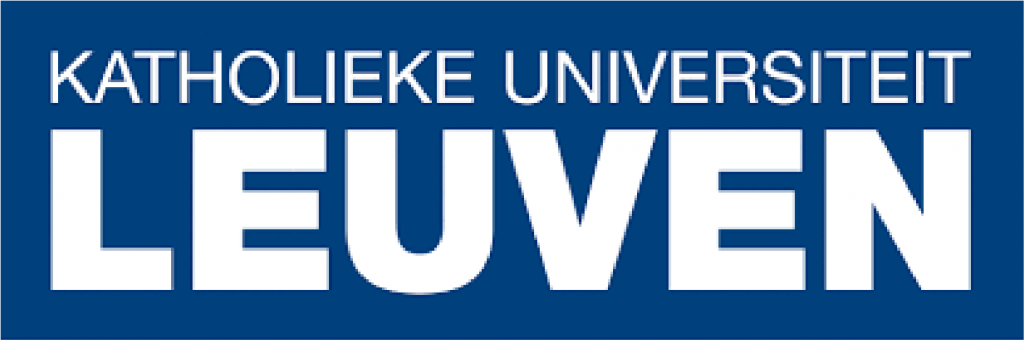Arriving in Dortmund Nordstadt and Beyond
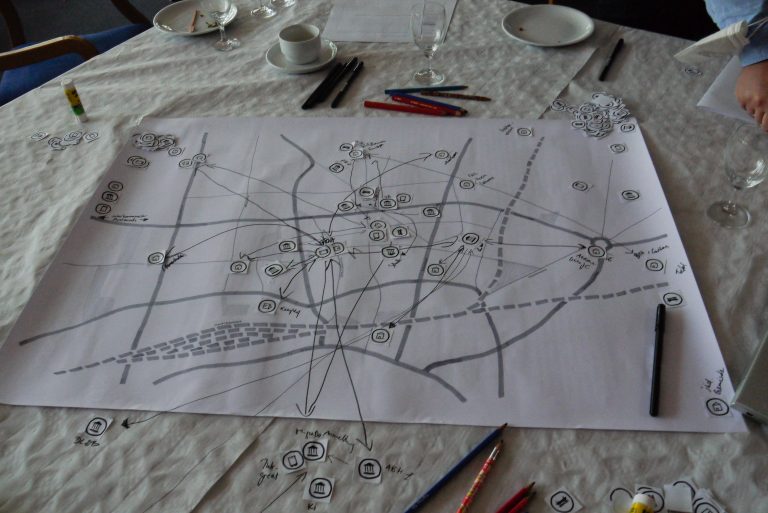
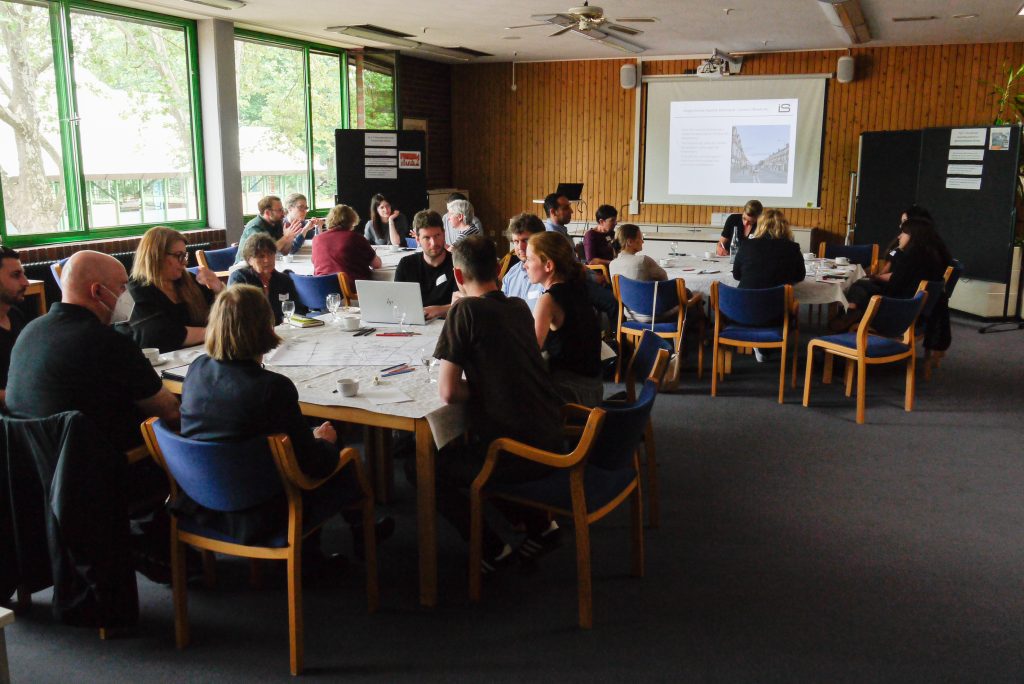
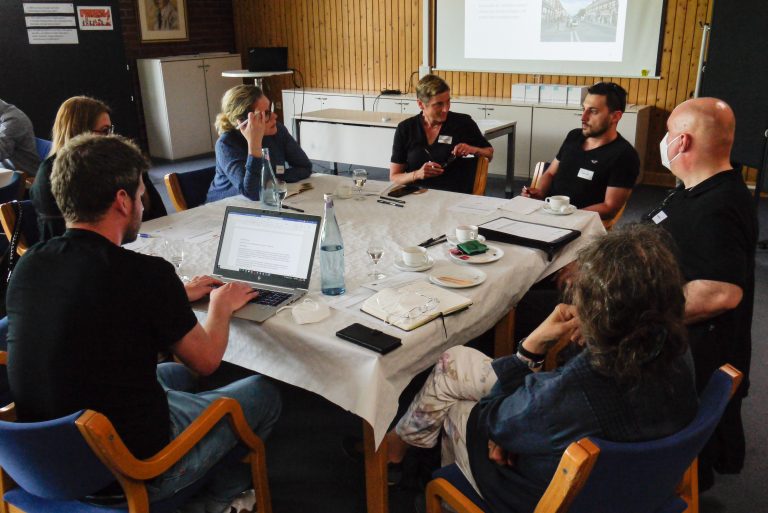
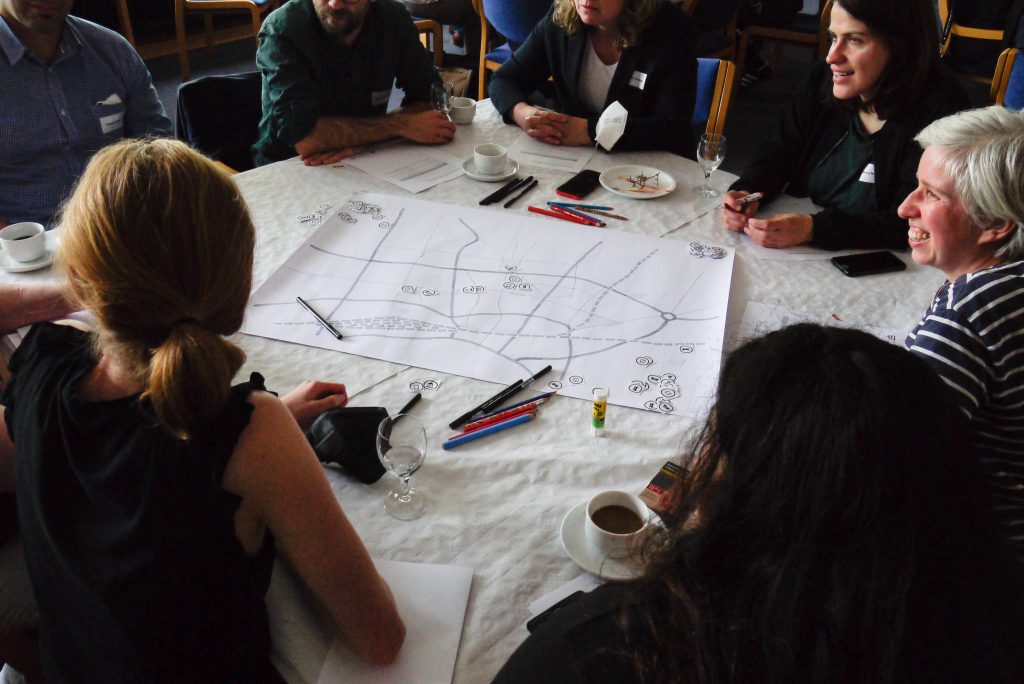
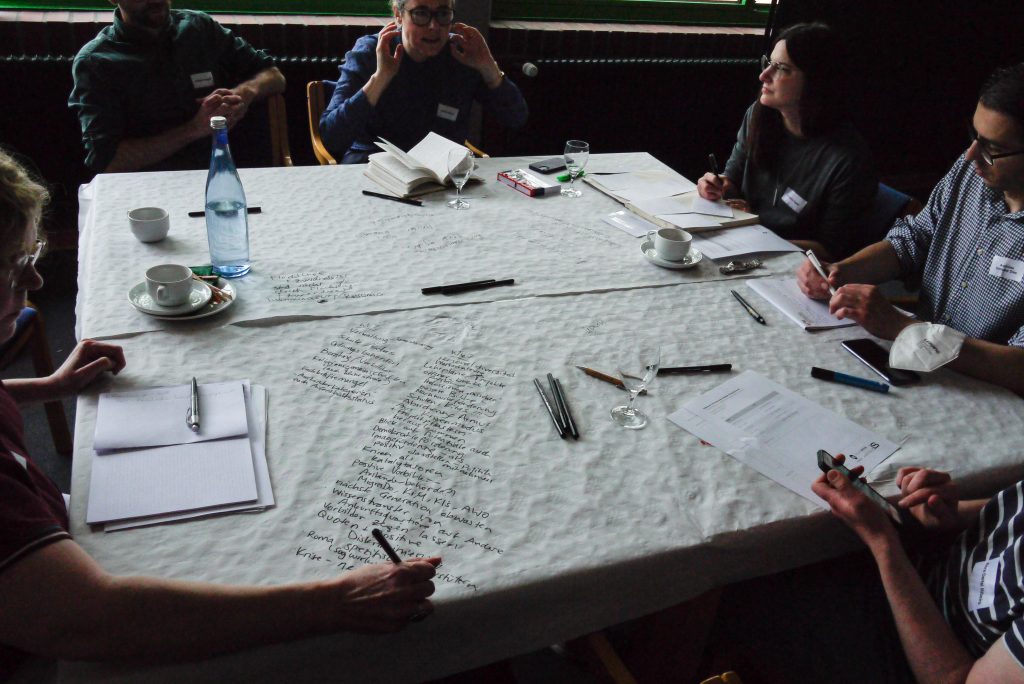
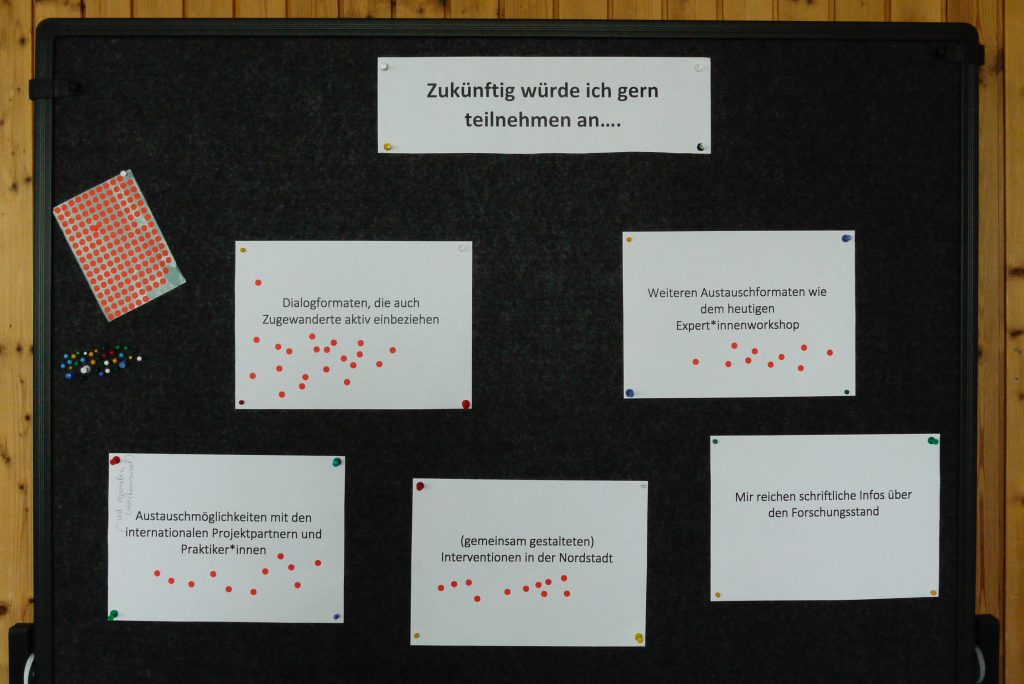
Our first transfer workshop in Dortmund Nordstadt took place on 20 May 2022 in the Dietrich-Keuning-Haus, a municipal socio-cultural centre in Nordstadt. The goal of the event was to provide initial insights into the research conducted to date and to exchange ideas on key topics. Around 20 local and regional stakeholders from civil society, local administration and local politics took part in the workshop, including representatives of the following organisations and institutions:
Integration Network Dortmund “Lokal Willkommen“
Municipal Integration Centre Duisburg
MIA-DO-KI Kommunales Integrationszentrum Dortmund
MigraDO Service Centre Migration and Integration Dortmund
MKFFI State Ministry for Children, Families, Refugees and Integration
Social Planning Section within the Social Department of Dortmund
District Management of Duisburg Marxloh
VMDO Federation of Socio-Cultural Migrant Associations Dortmund
ZEÖ Centre for Ethnic Economies
The event took place in a pleasant atmosphere and finally in person again. Due to long-established and strong network structures in Dortmund, many of the participants already knew each other, but there were also new connections to be made. Guests from Duisburg, the MKFFI as well as from London and the EU-Project ReROOT offered the opportunity for (supra)regional exchange.
In terms of content, we used the World Café format to focus primarily on three topics that we had identified as important in the research process to date:
- The role of arrival neighbourhoods in the overall urban context
- Arrival infrastructures and access points
- Diversity-oriented institutional change
The ambivalent function of arrival neighbourhoods was lively discussed at Table 1. On the one hand, arrival neighbourhoods like Nordstadt are characterised by a density of (non-)formal arrival infrastructures that facilitate newcomers’ first access to resources and can serve as a “springboard”. On the other hand, many low-income people are concentrated here and the neighbourhood is described as a mobility trap. Right at the beginning, it was stated that Nordstadt has been an important arrival neighbourhood for decades, despite the decentralized distribution of refugees. The neighbourhood will continue to play this role in the city as a whole in the future, and thus make a central contribution to the participation of new immigrants. It was emphasized that the composition of a neighbourhood can only be governed to a limited extent. However, a targeted framing as an `arrival neighbourhood´ can help to counteract a negative image by acknowledging and strengthening the city-wide role these neighbourhoods play. The example of Duisburg’s Marxloh arrival quarter shows how a municipality can work specifically on the external perception of a neighbourhood and further bundling of resources. The participants agreed that approaches to promoting participation and encounters should be thought of as small-scale as possible at the immediate neighbourhood or house level. It was also emphasized that, in addition to the immigrants, the needs of the long-established population should also be continuously taken into account. As an important framework condition for a successful arrival in the neighbourhood, the participants emphasized in particular good educational opportunities for all residents. To facilitate arrival, further diversity-led organisational change (e.g. diversity policies or recruitment strategies) is of central importance.
How new immigrants gain access to various social resources is another important topic. Especially given that a large part of the population, and particularly the newly arrived population, is affected by or at risk of poverty, social infrastructures in Nordstadt are of particular importance. Here, the main focus was on the interaction of formal and less formalised arrival infrastructures. It became clear that information about vacant apartments or suitable jobs, for example, is often conveyed in everyday contexts (such as a conversation at the corner shop). This is also how new immigrants reach more formal support structures. In a joint mapping by participants at the table, it became clear that within the existing networks of institutions and organisations, many referrals and cooperations take place and actors also use each other’s spaces (e.g. some institutions have mobile teams offering on-site consultations in community centres). The city of Dortmund pursues both centralised and decentralised approaches. In addition, strategies exist to be present in everyday places and to structurally integrate newcomers as collaborators. Funding logics with short and temporary project cycles were named as a problem, as they do not do justice to the continuity of new immigration in arrival neighbourhoods. Furthermore, there is currently a lack of school places, childcare facilities and paediatricians in Nordstadt, which severely impairs the arrival conditions for children, but also for their families (and especially mothers).
The third table focused on requirements and strategies for institutional change towards diversity in cities, neighbourhoods and local organizations, with a view to reducing discrimination and meeting the needs of a diverse society. The participants agreed that diversity orientation in all areas of local public services, including schools and daycare centres, makes a decisive contribution to ensuring access to important resources for immigrants. Multilingualism was named as an important element of diversity orientation of local public services. In some public institutions, interpreters and multilingual employees are a growing part of the workforce. Overall, however, there is no strategy for dealing with and promoting multilingualism in administrations. In addition, targeted efforts should be made to create a non-discriminatory organisational culture in which problems can be addressed openly. Participants discussed various strategies to achieve this, including staff recruitment approaches, targeted coaching and promotion, as well as intercultural education and raising awareness. There was unanimous agreement that the recent crises have accelerated important institutional learning processes. For example, the COVID-19 pandemic, related precautions, and the vaccination campaign have made it necessary to reach all populations quickly and comprehensively. As a result, the importance of multilingual and low-threshold information and services became apparent. The quick reaction of the Dortmund city council to the war in Ukraine was also highlighted. Here, it was possible to build on the experience gained in the course of immigration in 2015, e.g. the evaluation of migration cases and its administrative handling led to an improvement of the administrative processing of newcomers.
In the concluding round, there were some controversial discussions and new impulses for the ongoing research process. The role of arrival neighbourhoods in the city as a whole, the interplay between more formal and more informal arrival infrastructures, and strategies for diversity-oriented institutional change are topics that require further research, but also negotiations in practice. Overall, we received a lot of positive feedback and hope that the event was a prelude to further exchange between academics and practitioners. In a brief survey of their ideas for future exchange formats, it became clear that most participants would like to see more involvement of the newcomers whose lives are impacted by these discussions. Jointly planned interventions, as well as inter-community and international exchange also received much approval as suggestions. We look forward to working together and hope to contribute to improving the arrival process in Dortmund Nordstadt and beyond.




